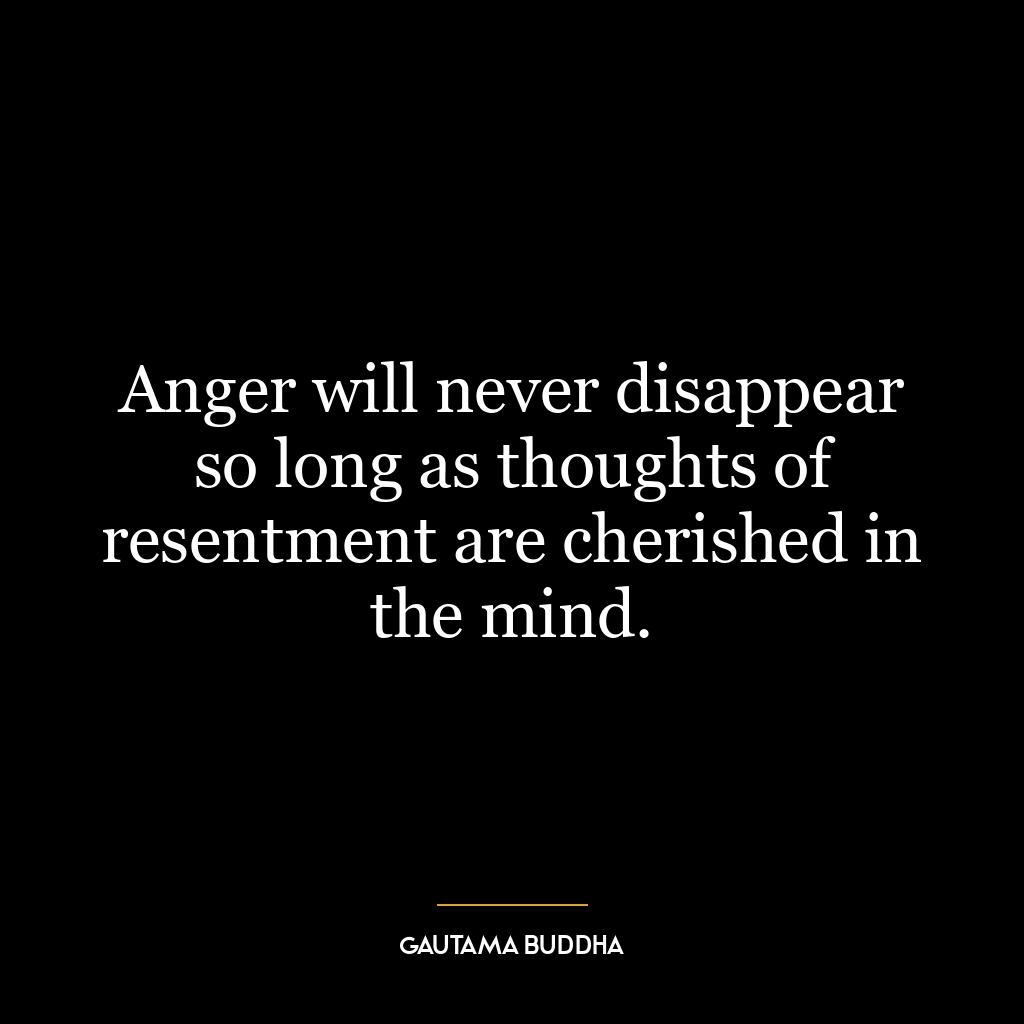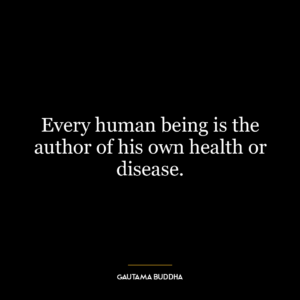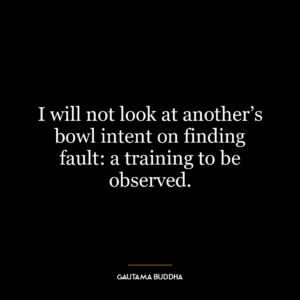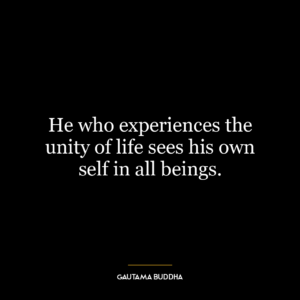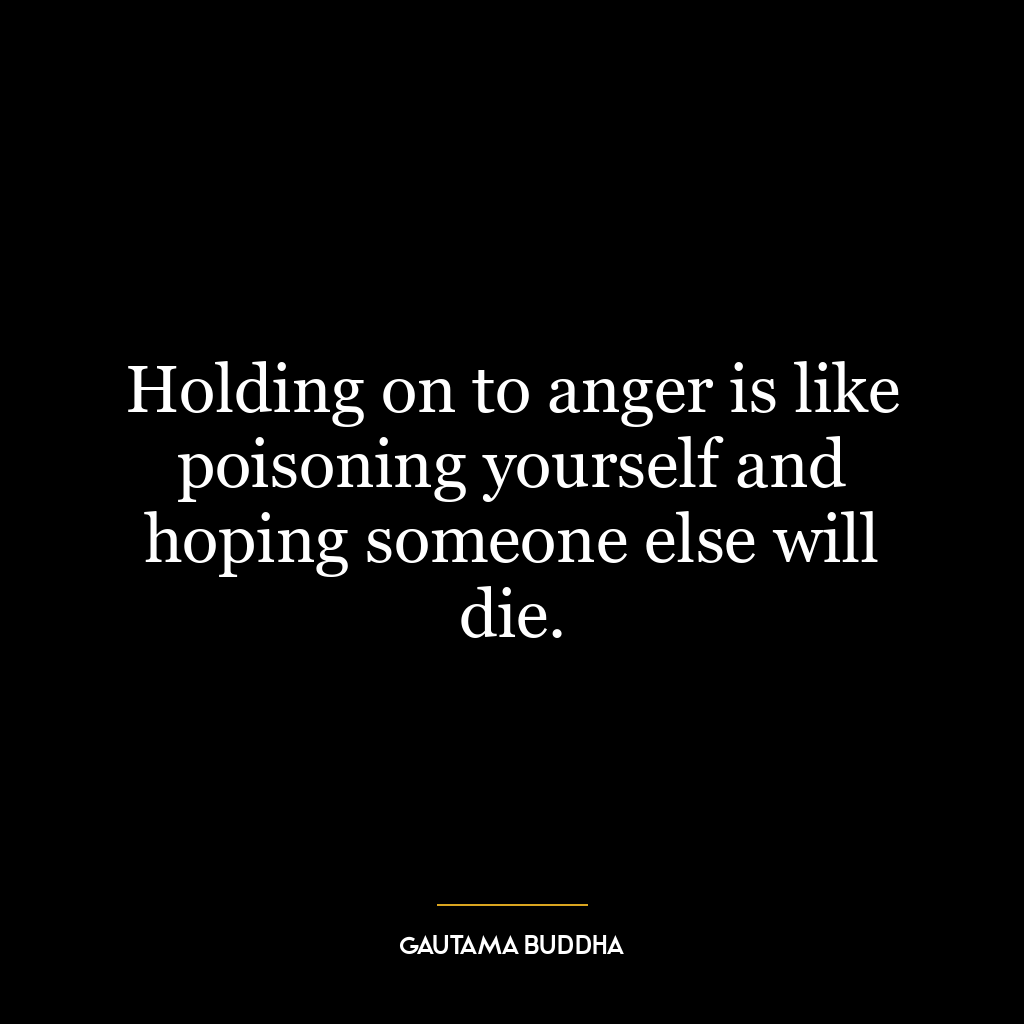Anger will never disappear so long as thoughts of resentment are cherished in the mind.
This quote emphasizes the power of our thoughts and how they can influence our emotions. In this case, Buddha is referring to anger, a powerful emotion that can consume us if we let it. He suggests that as long as we harbor thoughts of resentment in our minds, anger will persist.
Resentment is a feeling of indignation or bitterness stemming from unfair treatment. When we hold onto these feelings instead of addressing them or letting them go, they turn into a breeding ground for anger. This kind of sustained anger can be harmful not just emotionally but also physically and mentally.
In essence, Buddha is advocating for emotional intelligence and mindfulness – the ability to recognize one’s emotions (anger), understand what’s causing it (resentment), and manage or respond to it in a healthy way (letting go).
Applying this principle in today’s world isn’t always easy given the fast-paced nature of life where conflicts are inevitable whether at work or home. However, developing emotional intelligence could be one effective way to deal with such situations.
For instance, when someone wrongs you at work instead of harboring resentment which breeds anger and disrupts your peace over time; acknowledge your feelings first then seek constructive ways to address the issue like having an open conversation with the person involved.
Moreover, practicing mindfulness allows us to stay present and aware without judgment. This means noticing when thoughts of resentment start creeping in so you can consciously choose not to entertain them thereby preventing potential outbursts of anger later on.
In personal development too; understanding this concept could lead towards growth in emotional maturity as well as improved mental health since sustained feelings of resentment and anger have been linked with stress-related illnesses like heart disease among others.
Ultimately though while eliminating all negative emotions may not be entirely possible nor healthy since they’re part human experience; learning how best we react towards them could make all difference between living an angry life versus one filled with peace despite external circumstances.

